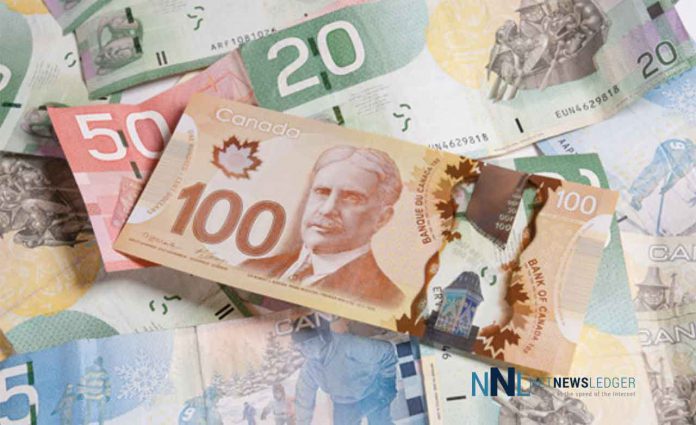CALGARY – BUSINESS – The latest MNP Consumer Debt Index finds that the number of Canadians concerned they cannot make ends meet without going into further debt has reached the highest level in three years. The quarterly poll conducted by Ipsos on behalf of MNP LTD finds that almost half (45%, +6pts since March) are not confident they’ll be able to cover all living and family expenses in the next 12 months without spending on credit. In fact, the proportion of Canadians who report being insolvent, or unable to pay their monthly bills and debt repayments, sits at the highest level recorded since the Index was created in 2017 (30%, unchanged). Half (51%, unchanged) say they are more concerned about their ability to repay their debts than they used to be.
Despite the concern, one-third (32%) say they plan to spend more than they normally would as they re-engage with the economy on things such as travel, dining, and entertainment.
“A significant proportion of Canadians appear to be ready to emerge from their bubbles and go straight into shopping malls, restaurants and airplanes to celebrate the pandemic wind down,” says Grant Bazian, president of MNP LTD. “For many, the financial damage will likely linger for years even as they regain employment and try to cope with new debts they may have accumulated.”
He points to the survey results showing that three in ten (30%) Canadians feel the pandemic worsened their debt or created more debt burden for either themselves or their family (35%). Part of the reason may be that six in ten (57%, -2pts) say they have taken advantage of low interest rates during the pandemic to make purchases that may not normally have fit within their budget.
While the majority (65%) report that they reduced their spending during the pandemic, how much of this was by choice and how much was by necessity remains to be seen. Even those who didn’t lose a job due to COVID may have made cautionary adjustments to their household budgets or changed their spending habits. Still, as consumer spending flows back into previously closed sectors of the economy, Canadians are finding themselves with more money at month-end after paying their bills; households report having more money left over than they did in March ($731, +$106). This may explain why about half (49%) of Canadians feel their debt situation is better now than it was before the pandemic started and are more relaxed about carrying debt than they usually are (45%, -4pts).
“After months of lockdown savings, I caution Canadians not to erase hard-won gains. It is understandable that many are seeking post-pandemic indulgences or making home upgrades, but the ability to do so is by no means universal. Those who went into lockdown already deeply indebted and then experienced prolonged financial disruption are vulnerable right now, and they should not rush to return to pre-pandemic spending habits,” says Bazian.
With lingering pandemic-related uncertainty and the potential for interest rate increases in the future, four in ten (43%, -1pts) are concerned that if interest rates go up much more, they are afraid that they will be in financial trouble. A third (34%, -1pts) would even go so far as to say that they are concerned that rising interest rates could drive them towards bankruptcy.
Homeowners with an outstanding mortgage may be at particular risk. One-third (32%) of Canadians who own a home say they are ‘house poor,’ meaning that they don’t have much left over after paying bills related to their home. All told, approximately 5.5 million homeowners are susceptible to financial disruptions such as an interest rate increase or change to their job situation. Perhaps it is, therefore, not surprising that two in ten (20%) homeowners say they regret the amount of debt they took on to buy their home.
“Those feeling overwhelmed by their bills should seek professional debt advice as the first step to getting their finances back on track,” says Bazian.
“As life slowly gets back to normal, the money management behaviours influenced during the pandemic can help all Canadians positively reshape their financial futures. Spend less, save more, and make emergency funds a priority.”
After a seven-point increase last wave, the MNP Consumer Debt Index has held onto these gains to sit at 97 points (+1pt). Although this relative stability from last wave’s sizeable increase is an encouraging sign of the country’s overall economic recovery, the pandemic continues to affect Canadians differently.
The poll found that households with higher incomes are more likely to say that their debt situation is better than before the pandemic, whereas those in households with lower incomes are more likely to say that their current debt situation is worse. Furthermore, younger Canadians are more likely to say both that their debt situation is worse than it was pre-pandemic and that the pandemic created more debt burden for themselves.
“Everyone’s situation is different, which why it is important for anyone struggling financially to get customized, unbiased advice from a Licensed Insolvency Trustee. They are the only debt-relief professionals who can offer the full range of debt-relief options available to Canadians,” adds Bazian.






